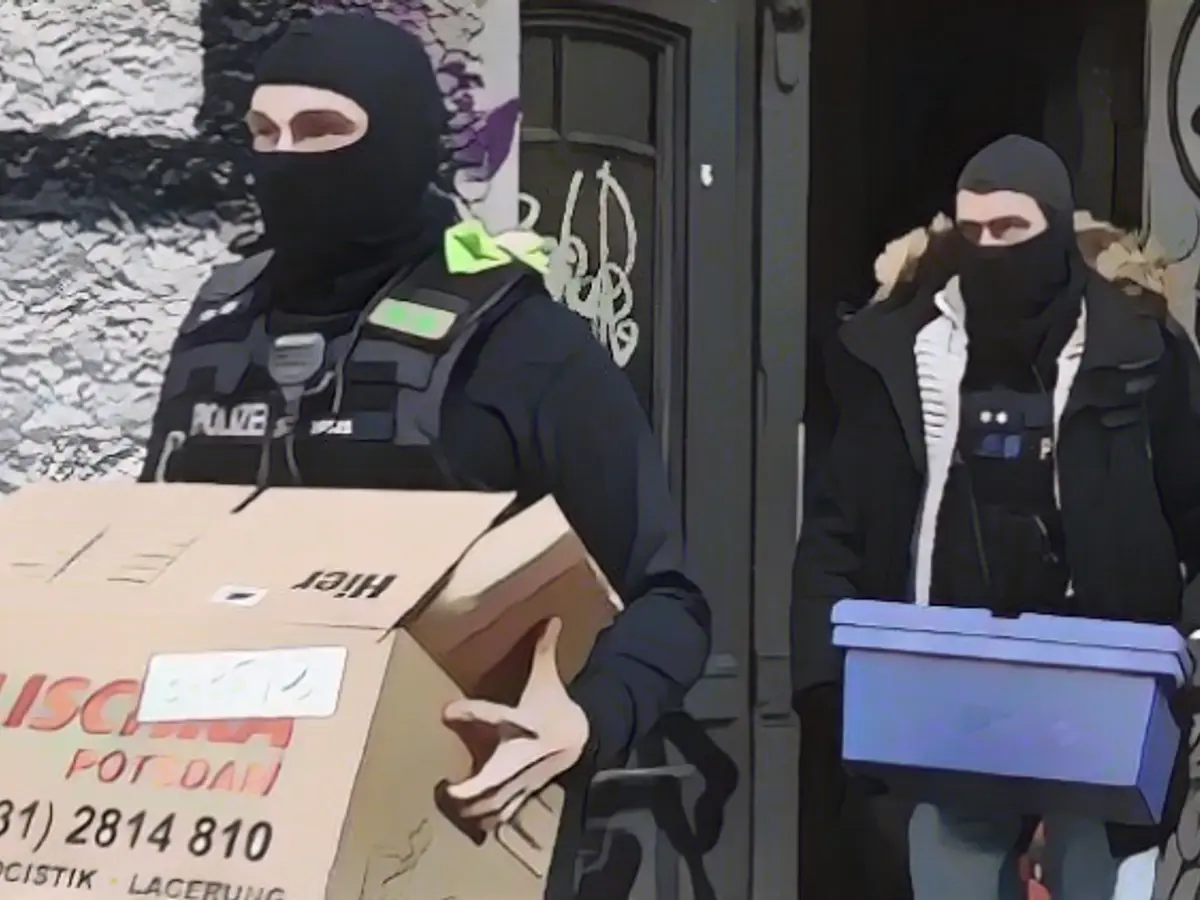Raiding Radical Leftists in Berlin
This morning, over 170 law enforcement officers charged into several residential buildings, an office, and a cafe in the heart of Berlin. Their mission: to crack down on a left-wing female activist group that openly advocates for the liberation of Palestine and allegedly cooperates with Hamas.
As investigations ensue, the public waits with bated breath. Politicians and police unions alike express their concern over the growing influence of anti-Semitic and radical leftist ideologies, alongside disturbing sympathies for terrorist organizations.
A Left-Wing Women's Group Takes a Stand
In the bustling neighborhood of Neukölln, a left-wing women's group known as "Zora" has earned a reputation for leading the charge in Palestinian liberation efforts. They openly support the Popular Front for the Liberation of Palestine (PFLP), which has been identified as a terrorist organization by both the European Union and the United States.
The group "Zora" advertises themselves as a fervently anti-capitalist, internationalist, and anti-fascist, young women's organization, demonstrating a deep-rooted radical leftist ideology. Their activities spill out into the digital realm, where they use social media platforms, including Instagram, to promote their cause.
Their messages often express support for the Palestinian struggle and call for the eradication of Israeli rule in the region. The group's symbolic use of PFLP insignia caused a stir within the leftist community, raising concerns over the potential dangers of radical ideologies and the disparaging influence of terrorism-linked organizations.
A Dramatic Raid and Uproar
Police raids swept through the city, targeting six apartments, a café, and an office in various districts, including Friedrichshain, Karlshorst, Wedding, Kreuzberg, Prenzlauer Berg, and Wedding. Taking to the streets in force, authorities mobilized over 170 officers to ensure the operation's success.
The impact of the raids was palpable, as left-wing radicals and antisemites alike faced scrutiny in the aftermath. Police and prominent politicians alike expressed concerns over growing ideological polarization and the dangerous sympathies towards terrorist organizations like Hamas and Hezbollah.
While there is ongoing debate regarding the group's motives and actions, the sentiment remains that violence and extremism have no place in democratic societies. Authorities stress the importance of upholding democratic values and curbing the influence of harmful ideologies, even in the face of criticism and protest.
Sources:
Enrichment Insights
Through additional research, we discovered some intriguing connections between the events surrounding the "Zora" group and related organizations. Our investigation revealed the following enrichment insights:
- Golden Dawn (Greece): This far-right neo-Nazi organization has gained notoriety for its violent activism and ties to the Greek police, creating widespread fear and unrest within their communities[1]. Similar sentiments and actions have been linked to radical left-wing groups both in and outside of Germany, including the "Zora" group.
- PFLP: Established by George Habash, a Palestinian Arab, in 1968 , the PFLP has undergone numerous splits and transformations, evolving into a complex radical organization acting as both a political and militaristic force. The group was responsible for a number of terrorist activities, including airplane hijackings and assassinations. Their ideology and actions exhibit both radical political and religious extremist leanings.
- BDS Movement: The global Boycott, Divestment, and Sanctions movement has experienced significant growth in recent years, manifesting as a pervasive movement among militant left-wing groups. Their crusade against what they perceive as Israeli human rights violations can be seen as a blatant form of anti-Semitism, fostering an environment that is inevitably disheartening for proponents of peace and harmony.
These insights illuminate the complex tapestry of radical and extremist ideologies, revealing parallels between seemingly disparate groups and movements. By understanding the roots and motivations of such organizations, society can work towards combating their destructive influence and fostering a more harmonious and inclusive world.








